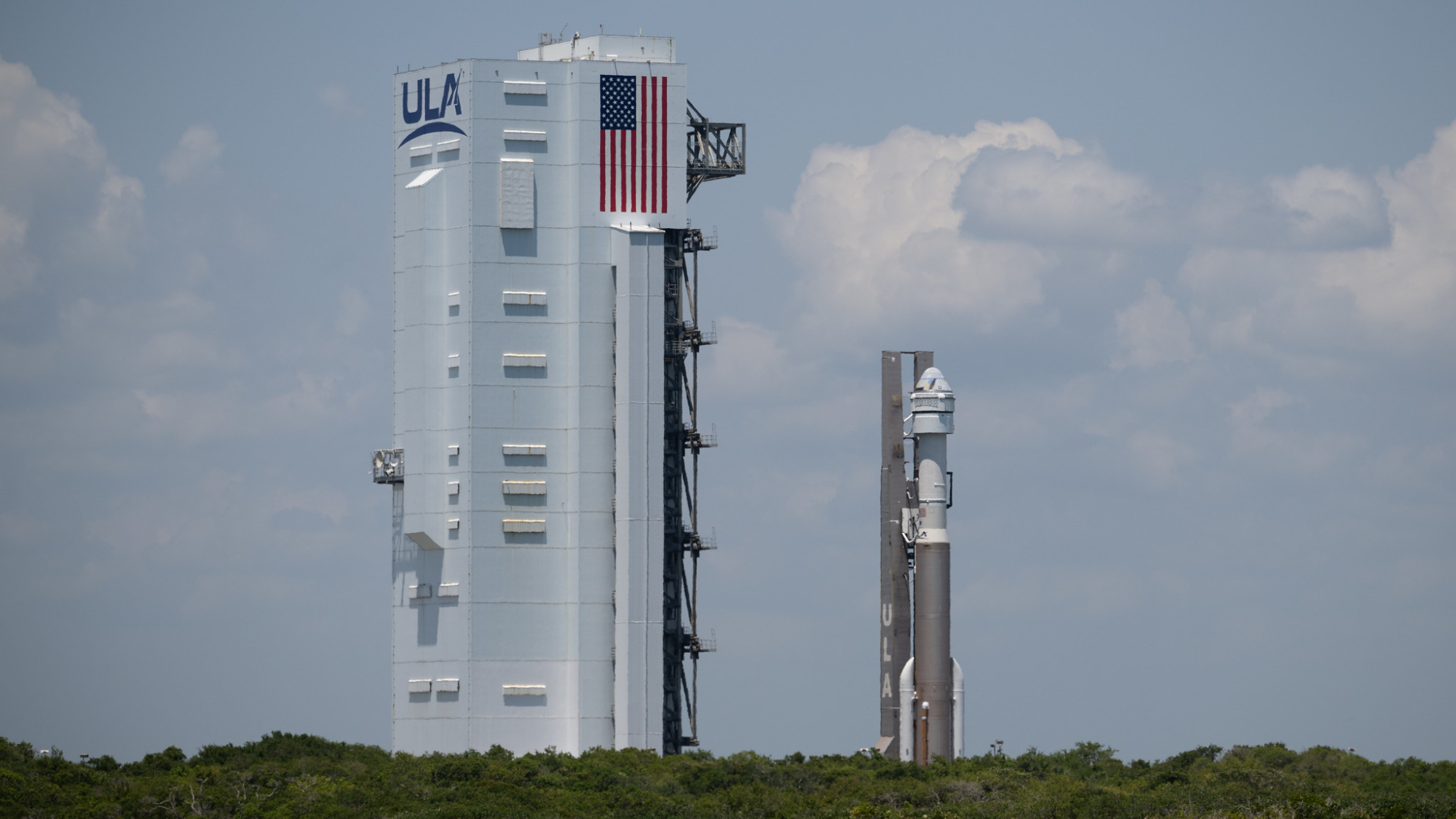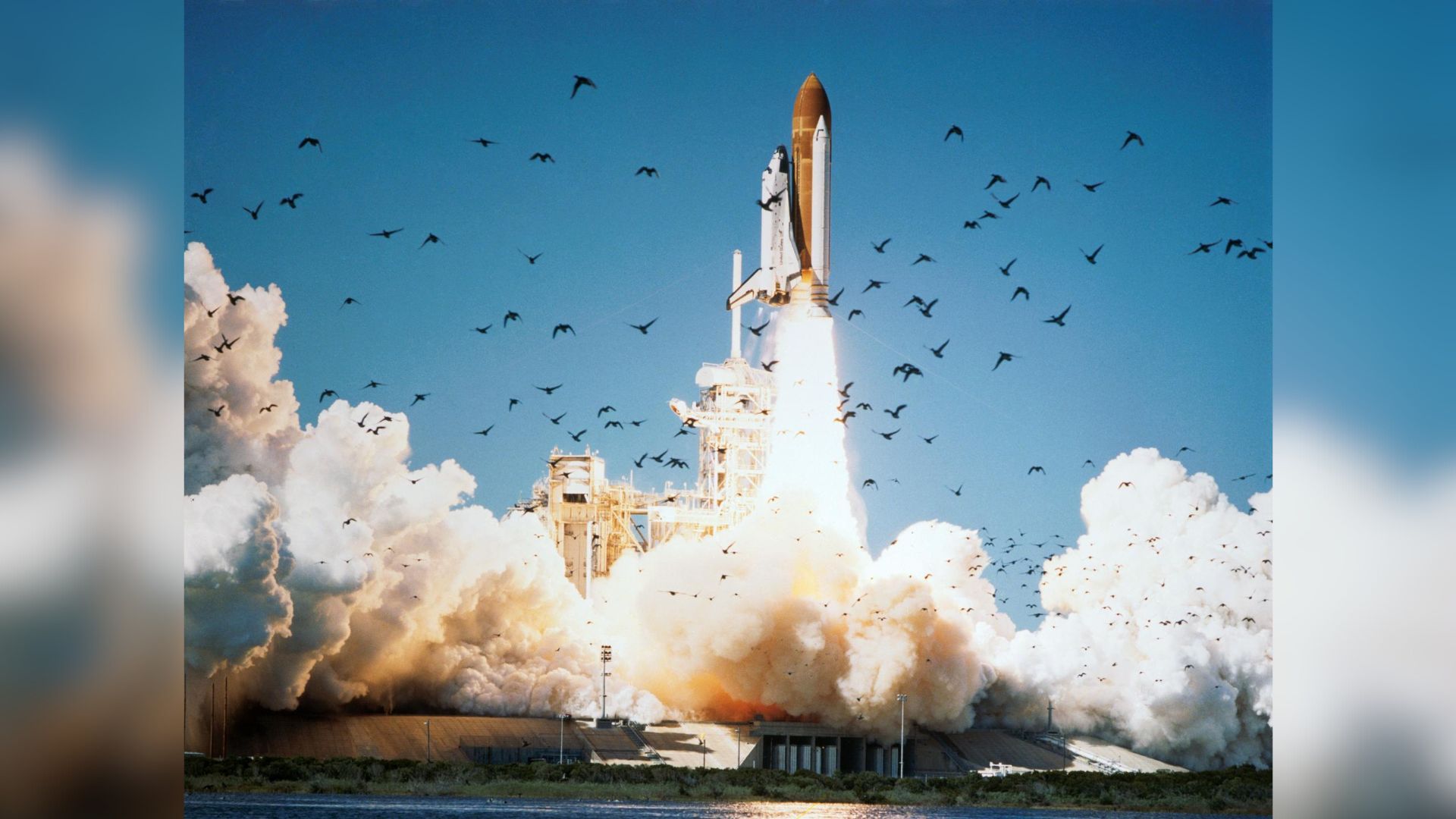1st astronaut launch of Boeing's Starliner capsule now targeted for June 1

Boeing is now targeting June 1 for the first crewed launch of its Starliner capsule, though that date is far from set in stone.
The flight date for the mission, called Crew Flight Test (CFT), has been in considerable flux recently. It had been scheduled to lift off on May 6 atop a United Launch Alliance (ULA) Atlas V rocket from Cape Canaveral Space Force Station in Florida, but that try was called off about two hours before launch due to a misbehaving valve in the rocket's upper stage.
ULA decided to replace the valve, which required rolling the Starliner-Atlas V stack off the pad — a move that pushed the planned liftoff back to May 17. That target was soon shifted to May 21, however, after a small helium leak was detected in Starliner's service module.
Related: 2 astronaut taxis: Why NASA wants both Boeing's Starliner and SpaceX's Dragon
But the launch team soon adjusted the target again, to May 25, explaining that more time was needed to assess the leak. Then, on Tuesday (May 21), NASA announced that May 25 was no longer an option for CFT but did not give a new target launch date.
In an update on Wednesday evening (May 22), the agency provided one: June 1, at 12:25 p.m. EDT (1625 GMT). There are backup opportunities on June 2, June 5 and June 6, NASA officials added.
These dates are very preliminary, however; team members continue to analyze data and map out potential paths forward.
Breaking space news, the latest updates on rocket launches, skywatching events and more!
"Work continues to assess Starliner performance and redundancy following the discovery of a small helium leak in the spacecraft’s service module," NASA officials wrote in the Wednesday update.
"As part of this work, and unrelated to the current leak, which remains stable, teams are in the process of completing a follow-on propulsion system assessment to understand potential helium system impacts on some Starliner return scenarios," they added. "NASA also will conduct a Delta-Agency Flight Test Readiness Review to discuss the work that was performed since the last CFT launch attempt on May 6, and to evaluate issue closure and flight rationale ahead of the next attempt, as part of NASA’s process for assessing readiness. The date of the upcoming Flight Test Readiness Review is under consideration and will be announced once selected."
We should get more details soon: Representatives from NASA, Boeing and ULA will hold a press conference about the current CFT situation on Friday (May 24) at 11 a.m. EDT (1500 GMT).
CFT will send NASA astronauts Butch Wilmore and Suni Williams to the International Space Station (ISS) for a roughly weeklong stay. The mission is Boeing's version of SpaceX's Demo-2 test flight, which the company aced in 2020. Thanks to that success, Dragon was certified to fly operational six-month crewed missions to and from the orbiting lab for NASA. Elon Musk's company is in the middle of its eighth such flight.
CFT will be the third flight for Starliner, following uncrewed test missions to the ISS in December 2019 and May 2022. Starliner failed to meet up with the station as planned on that first flight but succeeded on the second.

Michael Wall is a Senior Space Writer with Space.com and joined the team in 2010. He primarily covers exoplanets, spaceflight and military space, but has been known to dabble in the space art beat. His book about the search for alien life, "Out There," was published on Nov. 13, 2018. Before becoming a science writer, Michael worked as a herpetologist and wildlife biologist. He has a Ph.D. in evolutionary biology from the University of Sydney, Australia, a bachelor's degree from the University of Arizona, and a graduate certificate in science writing from the University of California, Santa Cruz. To find out what his latest project is, you can follow Michael on Twitter.
